#echo ryder
Photo


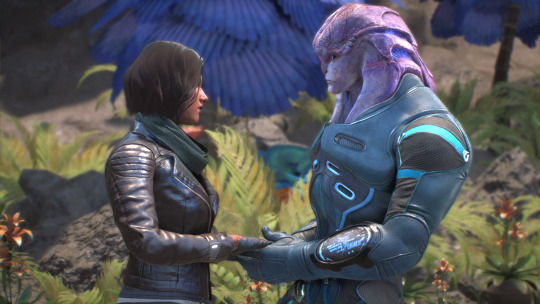

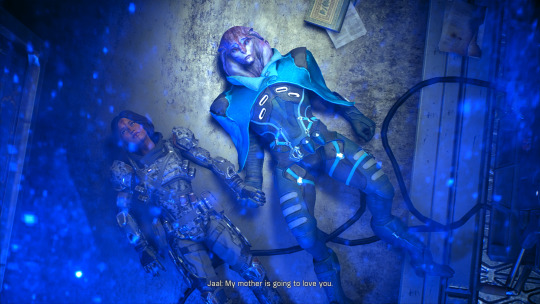
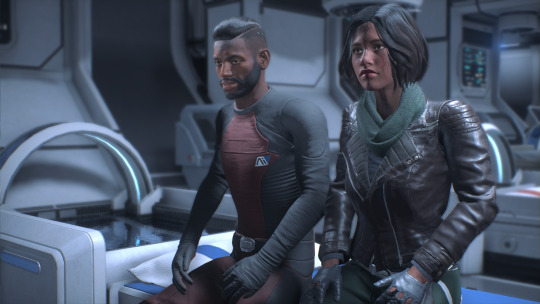

It’s been a minute but im currently obsessed with Mass Effect so heres some ss of my Ryder... and Jaal.
#my ss#echo ryder#rune ryder#jaal ama darav#jaal romance#ryder x jaal#mass effect andromeda#scott ryder#sara ryder#my ocs
40 notes
·
View notes
Text
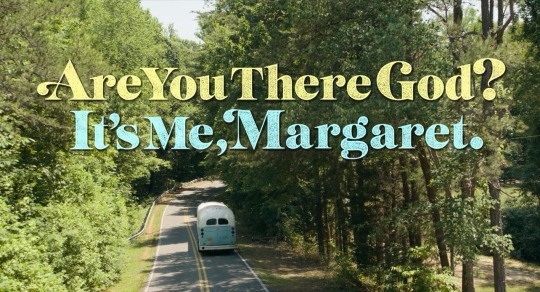


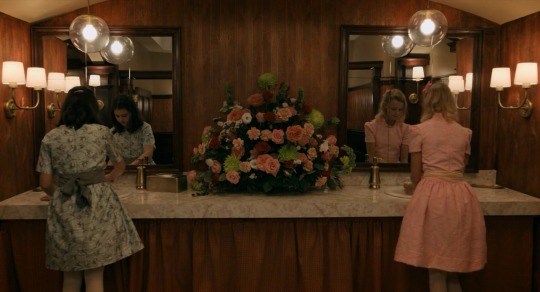


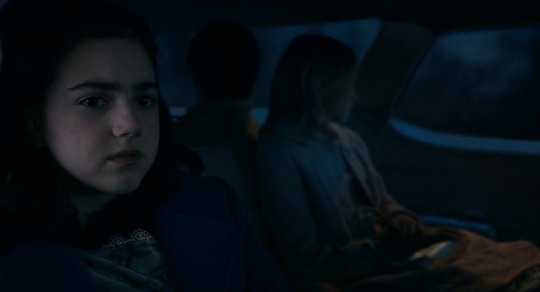
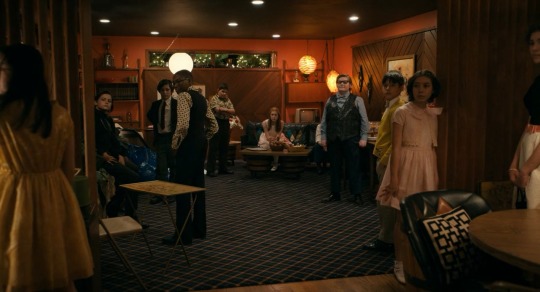

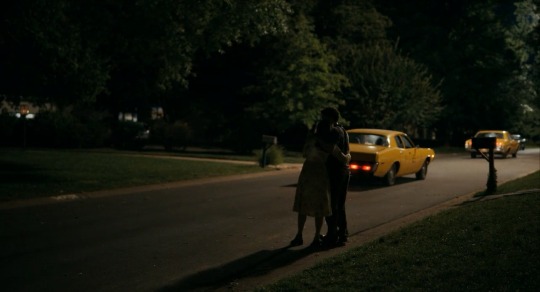
Are You There God? It's Me, Margaret (2023)
Director - Kelly Fremon Craig, Cinematography - Tim Ives
"I've been looking for you, God. I looked for you in Temple. I looked for you in Church. I didn't feel you at all. Why ? Why, God ? Why do I only feel you when I'm alone?"

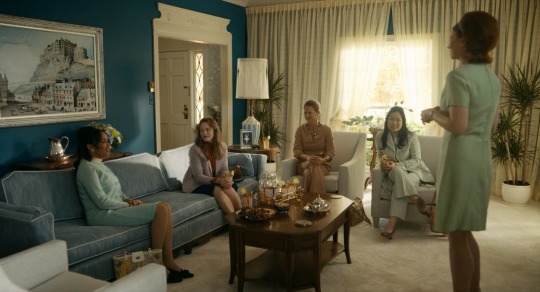
#scenesandscreens#are you there god? it's me margaret#kelly fremon craig#Tim Ives#landon s. baxter#echo kellum#Zackary Brooks#isol young#mia dillon#gary houston#benny safdie#elle graham#amari alexis price#katherine kupferer#kate maccluggage#aidan wojtak hissong#rachel mcadams#kathy bates#abby ryder fortson
119 notes
·
View notes
Text


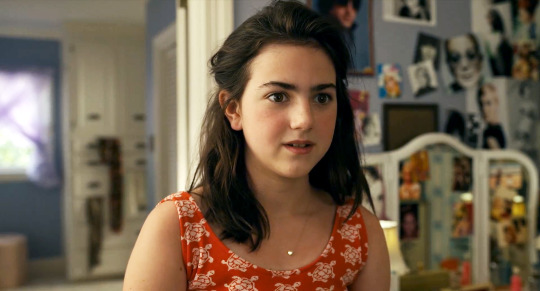
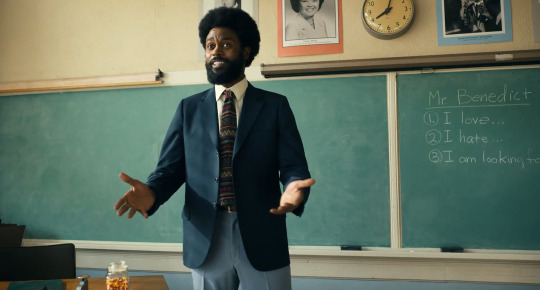
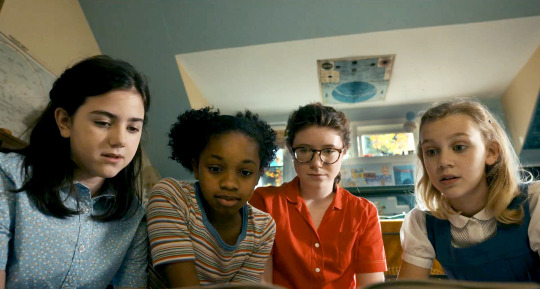
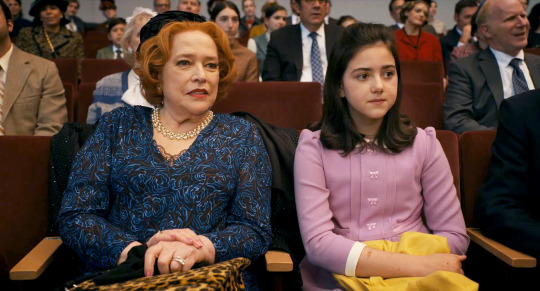
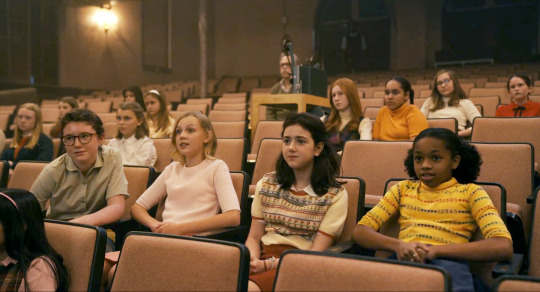

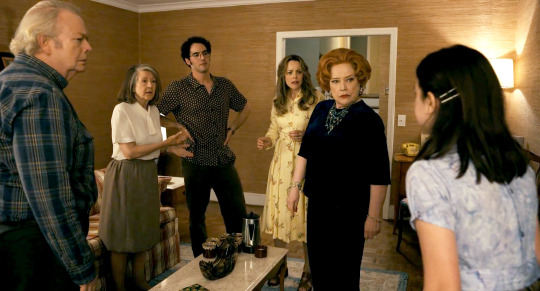
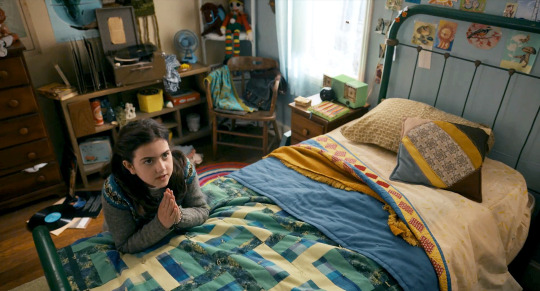
Are You There God? It's Me, Margaret. (2023) dir. Kelly Fremon Craig
#Are You There God? It's Me Margaret#Kelly Fremon Craig#Abby Ryder Fortson#Rachel McAdams#Benny Safdie#Kathy Bates#Elle Graham#Amari Alexis Price#Echo Kellum#Mia Dillon#Katherine Kupferer#Are You There God? It's Me Margaret.#Margaret Simon#watched today#Are You There God It's Me Margaret
74 notes
·
View notes
Photo
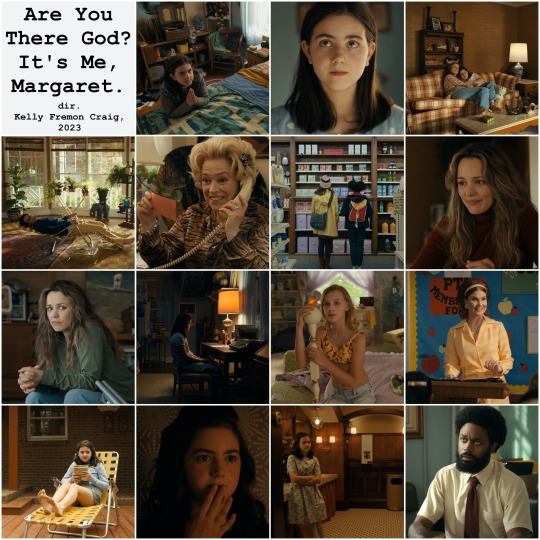
Are You There God? It’s Me, Margaret.
directed by Kelly Fremon Craig, 2023
#Are You There God? It's Me Margaret.#Are You There God? It's Me Margaret#Are You There God It's Me Margaret#Kelly Fremon Craig#movie mosaics#Abby Ryder Fortson#Rachel McAdams#Benny Safdie#Kathy Bates#Amari Alexis Price#Elle Graham#Kate MacCluggage#Echo Kellum
36 notes
·
View notes
Text

always kind of endlessly fascinated by different takes on player characters. Especially since I'm a bit of an outlier when it comes to Shepard vs Ryder.
Unkillable cockroach is more how I'd describe Ezra and "built different" is how I'd describe Noah.
It's perfectly reasonable given Shepard's position in their games vs Ryder's position in their game, as well as the clear age/experience difference, and perhaps just favoritism, that you'd put Shepard above Ryder. And I don't necessarily not feel that way about my Ryders vs my Shepards.
Just funny that because I have the power to put lipstick on Noah he came out a little more all-powerful Bayonetta coded.
#honestly I'd say gameplay in some ways even follows Shepard as better#even if Ryder gets some neat new powers Shepard doesn't and gets more flexibility#(this is partly because me3 is just. Easy even on insanity)#I mean Ryder gets cool shit like biotic echoes#but Shepard is crushing enemies better#like I cannot stand to go from me3 engineer to andromeda engineer even though I think they added some really neat stuff#the fact that you can only use 3 powers at a time also greatly hampers my enjoyment#Um anyway Noah is a biotic god but he's not necessarily a better soldier than Shepard.
4 notes
·
View notes
Photo
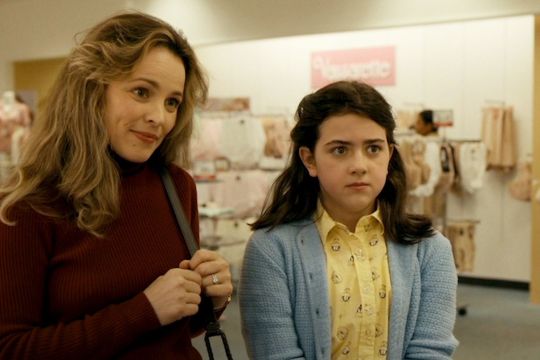
Are You There God? It’s Me, Margaret. (2023)
According to the American Library Association, there were over 1,200 challenges to remove library books or resource materials from an American school or public library in 2022. It was the highest number since the ALA started collecting data in 2003 and about half of these challenges result in a restriction or full removal of that text from circulation. Judy Blume’s Are You There God? It’s Me, Margaret. was one of the most frequently challenged books in the United States from its publication in 1970 through the 2000s due to its discussions of spirituality, girls’ sexuality, and menstruation. The recent book banning headlines in America tend to feature novels that have LGBTQ+ themes or have protagonists and/or prominent secondary characters who are non-white in tales surrounding racial relations. These contemporary debates might make the fury surrounding Are You There God? It’s Me, Margaret. seem quaint, in a culture far removed from the present. However, Blume’s book (and the debate surrounding it) remains relevant more than fifty years after its publication.
Perhaps it might surprise non-readers that Kelly Fremon Craig’s adaptation of Are You There God? It’s Me, Margaret. (henceforth, I will use simply Margaret in italics if referring to the book) is a gentle coming-of-age film in an environment sorely lacking such works right now. The lack of overly precocious children with a cynical wisecrack for every situation has few relations among its raunchy relatives of the last few decades; so too the absence of the meta humor and period-specific jokes of John Hughes’ (1984’s Sixteen Candles, 1985’s Ferris Bueller’s Day Off) movies. That cynical precociousness and audience-winking, period-specific humor could easily have appeared in Margaret if Craig, who also wrote the screenplay, made too many deviations from the source material. With Blume’s guiding hand as a producer, Craig’s as writer, and an enjoyable ensemble performance – especially Abby Ryder Fortson as Margaret – this is a worthy adaptation and entry into the American coming-of-age film canon.
Returning home to Brooklyn from a New England summer camp, eleven-year-old Margaret Simon (Fortson) is upset to hear that her parents Barbara (Rachel McAdams) and Herb (Benny Safdie) are soon to move to suburban New Jersey, leaving grandmother Sylvia (Kathy Bates) alone in New York. Shortly after arriving at the Simons’ new home, Margaret befriends eventual classmate Nancy Wheeler (Elle Graham), and her friends Janie Loomis (Amari Alexis Price) and Gretchen Potter (Katherine Kupferer). Through the school year, the girls will gossip about their classmates, talk about boys who catch their interest, bras, changes to their bodies, and more – the manner of their conversations, for middle school-aged characters, are unusual to see in films, let alone in literature. Meanwhile, their teacher, Mr. Benedict (Echo Kellum) assigns a yearlong research project to all. Noting Margaret’s answers on a getting-to-know-you assignment, he suggests looking into religion. That’s a touchy subject in the Simon household. Mother Barbara comes from a Christian family; father Herb from a Jewish family. Due to furious disagreements with Margaret’s grandparents, neither parent actively practices religion, nor have they imposed religion upon Margaret (she is free to choose when she “grows up”). Despite this, Margaret communicates to God on occasion about her hopes and concerns. Through the school year, Margaret will learn more about herself and religion, mostly on her terms.
Are You There God? It’s Me Margaret. also stars Isol Young as Laura Danker, a girl who is the target of nasty words because of her early puberty; Aidan Wotjak-Hissong as Margaret’s sort-of crush, Moose (I certainly hope that is a nickname); Landon S. Baxter as Nancy’s brother, Evan; Zackary Brooks as slick-haired handsome boy/shmuck Philip Leroy; and Kate MacCluggage as Mrs. Jan Wheeler (also PTA President). Mia Dillon and Gary Houston play Margaret’s maternal grandparents.
In terms of approach and tone, this is as finely-tuned a literary adaptation as there could be. Blume’s Margaret, slender as it is at under two hundred pages, is episodic by necessity and structure, often employing time skips of several days or a few weeks into a new chapter. Craig’s Margaret does so as well, but brief montages and editing from Nick Moore (1997’s The Full Monty, 2005’s Nanny McPhee) and Oona Flaherty ease the transitions – fully exemplifying one advantage motion pictures have over prose. The period detail in Margaret firmly grounds it in 1970. Together, the costume design by Ann Roth (1985’s Places in the Heart, 2021’s Ma Rainey’s Black Bottom) and production design by Steve Sakald (2005’s Thank You for Smoking, 2021’s Barb and Star Go to Vista Del Mar) transport the viewer to that period.
This adaptation contains a refreshing lack of major deletions from the original novel. All of the book’s important episodes, exchanges, ideas, and tender wisdom are in the film, and none of the secondary cast have been short-changed. If anything, the only notable alteration from Blume’s novel is the addition of a subplot for Rachel McAdams’ Barbara. Within this cast, McAdams is easily the most bankable movie star at present (with apologies the wonderful Kathy Bates, but her character is not as central to the narrative), which may have been the justification for this decision. Nevertheless, the subplot – which revolves around Barbara joining the school’s parent-teacher association (PTA) and volunteering for multiple committees – seems unnecessary, sidetracking from Margaret’s point of view (and Blume’s book is entirely written in Margaret’s voice). Thankfully, Barbara’s PTA experience does not have much screentime and always quickly reverts to Margaret. That the filmmakers did not fully trust Abby Ryder Fortson to carry an adult audience’s attention for the film’s entirety is disappointing, regardless of McAdams’ solid performance, as she needs to be the true star of this film.
Audiences may know Abby Ryder Fortson best as Cassie Lang from Ant-Man (2015) and its 2018 sequel. In her first film as the lead, Fortson is brilliant. She embodies Margaret’s guardedness and anxiety when first moving to New Jersey, especially in juxtaposition to the overly confident Nancy. Fortson also capture Margaret’s earnestness, as well as a few scenes of cruelty and thoughtlessness – crucially, Margaret’s worst moment feels plausible, and never seems as if the behavior is coming from some other character entirely. However, Craig’s screenplay, due to its inability to stay firmly in Margaret’s point of view, underserves her in the film’s final act when her maternal grandparents arrive. By no fault of Fortson’s, the film does not delve deeply enough into how Margaret feels about her maternal grandparents’ estrangement and attempts to reconcile with her parents. Fortson can only do so much in lending Margaret a mix of bafflement and uncertainty in these scenes in arguably the most emotionally charged scenes of the film. Here, the film is torn between Margaret’s feelings about her maternal grandparents and parents’ disagreements and how parental decisions can impact children for the rest of their lives. It achieves neither.
I have never been a teenage girl, nor was I raised in an environment where any of the Abrahamic religions were even tangentially part of my life (let alone being part of an interfaith family). Judy Blume probably did not have someone like me principally in her mind when she wrote her book. But in Margaret, I saw a glimmer of the past that I imagine many of you will see for yourselves, too. The incredible awkwardness of being a pre-teen is probably something you, the reader, would probably like to keep half-forgotten. Rare is the film that can summon those feelings: of wanting to grow up (and quickly!), only to realize that those milestones that we associate with maturity are perhaps not as earthshaking as we imagined them to be. True maturation is more elusive than what Margaret and her friends envision. Religion, the passage of time, and sexuality cannot confer it. And some grown-ups never quite discover that. Fortson, through her performance, and Craig’s screenplay deliver on all of this, even if Fortson herself might not realize it yet.
At eighty-five years of age, Judy Blume has had a modest cinematic renaissance this year. Her books, fixtures in American children’s and young adult literature, have curiously not often been adapted for television or film. But with this film and the documentary Judy Blume Forever premiering at the Sundance Film Festival earlier this year, that appears to be changing. On the television front, Netflix is currently in production on an adaptation of her young adult novel Forever… (another Blume work often finding itself on most banned/challenged book lists); also in the pipeline are TV adaptations of the Fudge series for children and the adult book Summer Sisters. For the New Jersey-born-and-raised Key West, Florida native, conversations about her legacy are underway. Despite her unassuming persona and the gentleness of both Margaret and its film adaptation, Blume has been a vocal critic of Florida’s recent Parental Rights in Education bill (also known as the “Don’t Say Gay” bill) and requirements to review books based on state guidelines mostly over gender identity, race, and sex. No surprise for an author who has been the target of book bans from almost the beginning of her career.
Are You There God? It’s Me, Margaret. arrives at a time when coming-of-age movies are, at least among the major and mini-major (such as Lionsgate, which distributed this film) American movie studios, no longer perceived as commercially viable for theatrical exhibition. Coming-of-age movies must be packaged within a superhero movie or tied to a franchise in order to find its way to American cinemas. The creative and financial heads of the superhero cinematic universes claim that their narratives can encompass genres/subgenres such as coming-of-age or political thrillers or historical epics, but their approach and distributional dominance precludes non-superhero affiliated films of such genres/subgenres from appearing in theaters in the first place. Their influence makes the existence of this film’s theatrical run – despite its apparent failure to find much of an audience beyond those who have read the book (non-readers of certain political stripes probably mistakenly thought this was a faith-based film from the evangelical Christian film industry or already knew about the book’s reputation and refused to see it) – a minor miracle.
Director Kelly Fremon Craig has worked on a coming-of-age film before surrounding a female protagonist in The Edge of Seventeen (2016). But Margaret – for its remarkable faith to the source material, engaging performances, and meticulous period detail – is an achievement surpassing that. Craig’s sensibilities as director and writer suit the film, and Fortson’s performance elevates it to the level of the most universal American coming-of-age movies.
My rating: 8/10
^ Based on my personal imdb rating. My interpretation of that ratings system can be found in the “Ratings system” page on my blog. Half-points are always rounded down.
For more of my reviews tagged “My Movie Odyssey”, check out the tag of the same name on my blog.
#Are You There God? It's Me Margaret#Kelly Fremon Craig#Judy Blume#Abby Ryder Fortson#Rachel McAdams#Kathy Bates#Benny Safdie#Elle Graham#Amari Alexis Price#Katharine Kupferer#Kate MacCluggage#Aidan Wojtak-Hissong#Landon S. Baxter#Echo Kellum#Zackary Brooks#Isol Young#Mia Dillon#Gary Houston#My Movie Odyssey
4 notes
·
View notes
Text
Bill Ryder-Jones Interview: Defiant, Not Defeated

Photo by Marieke Macklon
BY JORDAN MAINZER
On Bill Ryder-Jones' most personal and heart-wrenching record yet, the first voice you hear is not his own. In fact, it's not even clear whose voice it is: It's a ghostly sample of somebody repeatedly cooing "baby." Though Tropicália fans might recognize the sound as a washy sample of Gal Costa's song "Baby", the effect is disorienting, especially as Ryder-Jones introduces you into the world of Iechyd Da (Domino)--which means "good health" in Welsh--and its balance of broad hope and tangible pain.
Ryder-Jones has never been one to shy away from his struggles. He left The Coral temporarily in 2005 and permanently in 2008 due to suffering from panic attacks, sharing his story in a short film about mental health in the music industry. In an interview with The Quietus from earlier this year, he revealed long-running suffering from addiction and mental illness, ranging from alcohol and prescription drug abuse to agoraphobia exacerbated by COVID lockdown. At the time of that interview's publication last month, Ryder-Jones was, thankfully, doing better. But it's also a disservice to the contextually provocatively titled Iechyd Da to call it an album "about" Ryder-Jones' inner battles. Though many of the songs reference specific points in his journey towards conquering fears and demons, it's an album namely about surrounding yourself with love.
That the first voice we hear on Iechyd Da is Costa's only foreshadows what we hear on the rest of the record. There's singer-songwriter Michael Head (who Ryder-Jones has produced) reading a passage from Ulysses on "...And The Sea...". A chorus of children, who Ryder-Jones worked with extensively on the record, provide contrasting, innately buoyant timbres to his weary croak. On "This Can't Go On", a song representing one of Ryder-Jones' rock bottoms, he finds solace in Echo & The Bunnymen's "The Killing Moon", further references The Stooges, and samples strings from a 1978 disco track. The swaying, romantic "If Tomorrow Starts Without Me"--which gets its title from a line a sex worker reads in Eurotrash--is akin to It's A Wonderful Life, though it's not clear who's the hopeless one and who's the angel. "If the monsters call you names, then I'm with you," Ryder-Jones sings, "I've had monsters play games with me too." Perhaps best of all are the people he addresses by name in song, like Jase on the jangly "I Hold Something In My Hand", and the titular Anthony on "Thankfully For Anthony". Inspired by a real-life experience where a concerned friend took a sick Ryder-Jones to the hospital after receiving a cryptic text message from him, the latter song covers the moment Ryder-Jones thought he might die to when he overcame. Hearing him sing, "I'm thinking this might just be it" is as heartbreaking as it is inspiring to hear him sing, "I felt love." Atop xylophone and strings, it's as life-affirming as anything Spiritualized have ever released.
Ultimately, Iechyd Da is an aspirational record, not a mere biographical one. The connotatively positive words may sometimes adopt past tense, like, "Oh how I loved you," on "A Bad Wind Blows In My Heart pt. 3", the next entry in the series started on the 2013 album of the same name. [Among everything else, Ryder-Jones went through a bad breakup during lockdown.] But for every nostalgic or wistful aspect on the album, there's something positive and realistic. Closer "Nos Da", which means "good night" in Welsh, warbles to a gorgeous imperfection, its synths and strings off-kilter. And on melodramatic strummer "It's Today Again", Ryder-Jones sings, "There's something great about life," perhaps the ethos of the entire album. Notably, he doesn't sing, "Life is great," which would be a statement as absurd as it is corny. But he admits that, among all ups and downs, with a worn sense of perspective, there are things to be thankful for. A cynic might disagree. With Iechyd Da, Bill Ryder-Jones demonstrates his humanism.
Earlier this month, I asked Ryder-Jones a few questions about the album over email. Read his responses below, edited for length and clarity.

Since I Left You: With Iechyd Da, you wanted to make a more hopeful record. What about it do you think is hopeful?
Bill Ryder-Jones: I feel like the music in places is more hopeful and promising of hope than music I've made in the past. It's hard to put into words what I think makes music sound hopeful. I guess if nothing else, the music doesn't sound defeated--maybe [it sounds] even defiant.
SILY: Some of your lyrics are confessional, but they're not quite like you're reading somebody's diary. What's the importance of keeping some of your more personal stories on the vague side? How do you decide when to share certain details, like the names of songs you were listening to during a difficult time, or the names of people?
BRJ: I think that's something I have a natural taste for. I don't think I'm conscious of how direct the lyrics are. More often than not, the first verse will dictate where the song is going, so I tend to just go with it.
SILY: From characters on previous albums to older song titles ["A Bad Wind Blows In My Heart pt. 3"], you reference your previous work quite a bit on Iechyd Da. Do your records work in concert with one another?
BRJ: No, not really. Maybe they do; I'm not sure. The others weren't designed for that reason in the way Iechyd Da was. It was a deliberate attempt to draw a link between this album and A Bad Wind Blows in My Heart. I feel they sit really sweetly together.
SILY: What inherent qualities do you think the sound of children singing has? When they sing lines like, "I just don't see myself getting past this one," do the words carry a different meaning?
BRJ: Yeah, I think there's something inherently beautiful in the sound of children singing. It's so, so sweet and powerful. The idea that you can have them sound that way whilst saying a few things that are possibly beyond their understanding I think is a good idea.
SILY: You've mentioned that Iechyd Da is your most produced record. What about the specific albums you produced in the past five years gave you the confidence to make your own record more produced?
BRJ: Well, confidence isn't the word I would use. In fact, music is one of the few things I feel confident in. The decision to make an album sound like this one was mainly down to wanting to push myself and make music that truly made me happy, but of course, working with artists will influence you in myriad ways. Certainly...Michael Head [and the Red Elastic Band's Dear Scott] and Saint Saviour['s In The Seams] were important for me in terms of scope and ambition.
SILY: The instrumentation on the final song, "Nos Da", is warbly and a bit hazy. Is it supposed to reflect memory or nostalgia?
BRJ: It was originally written as a lullaby for my friend's daughter, Luna. I remembered it by chance when I was finishing the album. The warble I think I added to bookend the album, hoping it sounded similar to the sample of Gal Costa['s "Baby"].
SILY: How do you find playing live some of the songs that reference more difficult times in your life? Are you able to get into an appropriate headspace?
BRJ: I'm fine with that. I'm mainly trying to remember lyrics and not have a panic attack. I detach from things quite easily, if I'm honest.
SILY: How does the tale of Ulysses and the Michael Head-featuring track "…And The Sea…" fit within the narrative of Iechyd Da?
BRJ: I guess in the way that I thought, "I can do whatever I want," and I wanted to have this strange piece in the album as a respite from my voice. I listen to much more performance music these days as opposed to purely melodic music. I think it came from there.
SILY: How would you describe your treatment of the Gal Costa sample at the beginning of “I Know That It’s Like This (Baby)”? And the chatter on "Nothing To Be Done"?
BRJ: The sample is Gal Costa singing "Baby" but recorded to give the effect that it's playing in the background in the room I was in rather than crisply. The chatter, I think, is probably just bits of audio from the kids when they were talking mid-recording.
SILY: Are you a fan of Eurotrash?
BRJ: Ha, I haven't seen it in years.
youtube
#interviews#bill ryder-jones#domino#iechyd da#marieke macklon#gal costa#domino recording company#the coral#the quietus#michael head#ulysses#echo & the bunnymen#the stooges#eurotrash#it's a wonderful life#spiritualized#a bad wind blows in my heart#michael head and the red elastic band#dear scott#saint saviour#in the seams
1 note
·
View note
Text
Flynn Ryder: The first Morally Gray Man the book girlies fell for.
#writeblr#writers on tumblr#writing prompt#booklr#writers#writing#bookblr#tumblr writer#writblr#tangled#flynn ryder#rapunzel#pascal#echoes of time
1 note
·
View note
Text
Are You There God? It's Me, Margaret.
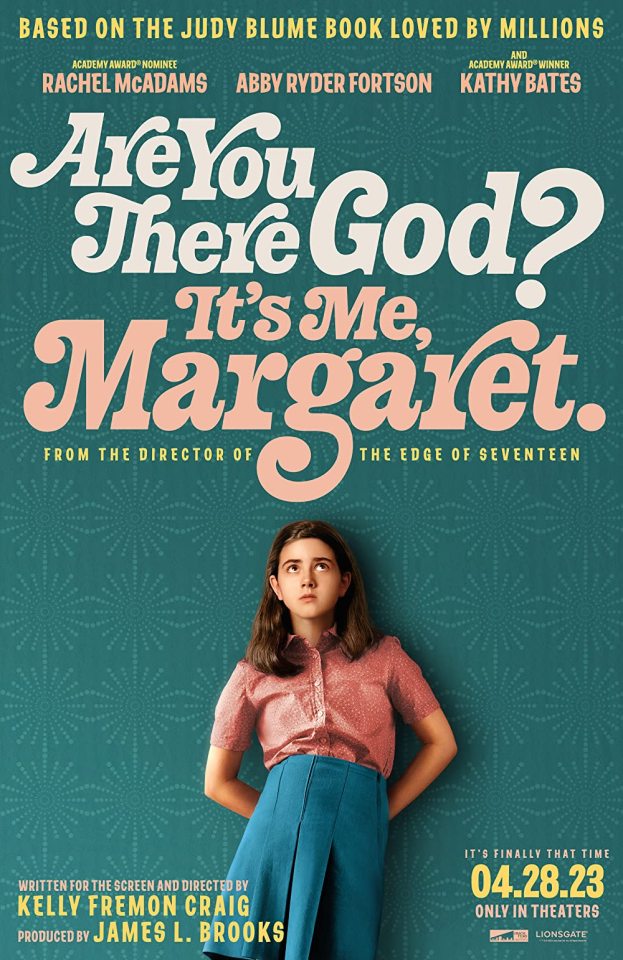
Movies watched in 2023
Are You There God? It's Me, Margaret. (2023, USA)
Director & Writer: Kelly Fremon Craig (based on the book by Judy Blume)
Mini-review:
Oh, I loved this! I must admit I never got around to reading the book, but after watching the movie (I've heard it's a very loyal adaptation), one can easily tell why it's widely regarded as a classic. It portrays puberty in a really frank and straightforward way, but also with a lovable dose of warmth. As for the cast, Abby Ryder Fortson is an absolute star and she will have a brilliant future, there's no doubt about that. And the rest of the kids are also fantastic! It honestly surprised me how good they all were. And of course, with names like Rachel McAdams and Kathy Bates in the cast, you already know the adult cast will deliver too. Their performances are as amazing as usual. Pitch perfect casting, for real. Last but not least, the period setting is beautifully recreated through the sets and the costumes. Anyway, Are You There God? It's Me, Margaret. is a lovely addition to the coming of age genre and will probably end up being considered a classic, just like the book.
#are you there god? it's me margaret#kelly fremon craig#judy blume#abby ryder fortson#rachel mcadams#kathy bates#benny safdie#elle graham#amari alexis price#katherine kupferer#kate maccluggage#aidan wojtak hissong#landon s. baxter#echo kellum#zackary brooks#isol young#mia dillon#gary houston#comedy#drama#puberty#coming of age#coming of age movies#movies watched in 2023
0 notes
Photo
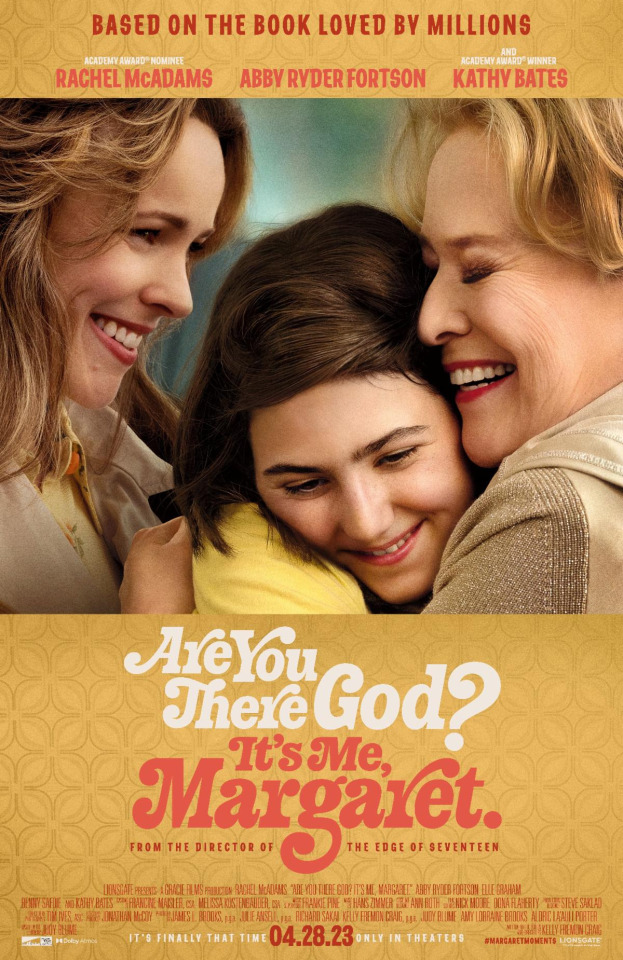
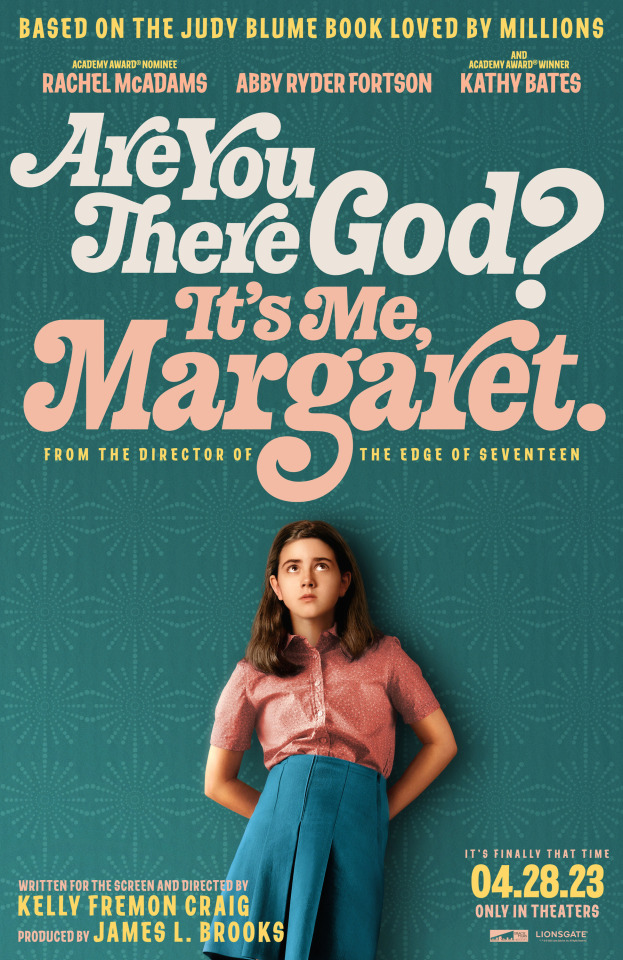

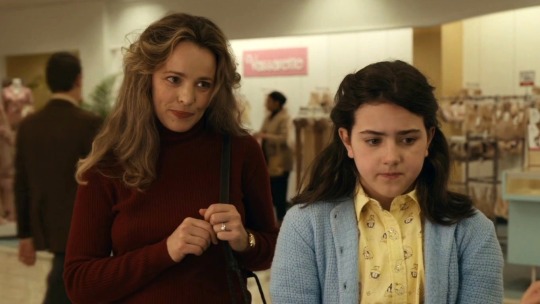


Are You There God? It’s Me, Margaret. (2023) Kelly Fremon Craig
June 10th 2023
#are you there god? it's me margaret.#2023#kelly fremon craig#abby ryder fortson#rachel mcadams#kathy bates#benny safdie#elle graham#amari alexis price#katherine mallen kupferer#kate maccluggage#echo kellum#isol young#aidan wojtak-hissong
0 notes
Link
Abby Ryder Fortson, Kathy Bates, Rachel Adams, Benny Safdie, Elle Graham, Katherine Mallen Kupferer, Amari Alexis Price, Kate MacCluggage, Landon S. Baxter, Aidan Wojtak Hissong, Echo Kellum, Simms May, Isol
#Abby Ryder Fortson#Kathy Bates#Rachel Adams#Benny Safdie#Elle Graham#Katherine Mallen Kupferer#Amari Alexis Price#Kate MacCluggage#Landon S. Baxter#Aidan Wojtak Hissong#Echo Kellum#Simms May#Isol Young#Zack Brooks#Jecobi Swain#Ariel DiDonato#Karen Macarah#Tanya J. McClellan#Samantha LeBrocq#Sloane Warren#Ethan McDowell#Wilbur Fitzgerald#Gary Houston#Mia Dillon
0 notes
Text
Are You There God? It's Me, Margaret. (2023) Review
When her family moves from the city to the suburbs from New York to New Jersey, Margaret who’s 11 years old must navigate new friends, feelings and the impending start of puberty.
⭐️⭐️⭐️⭐️
Continue reading Untitled
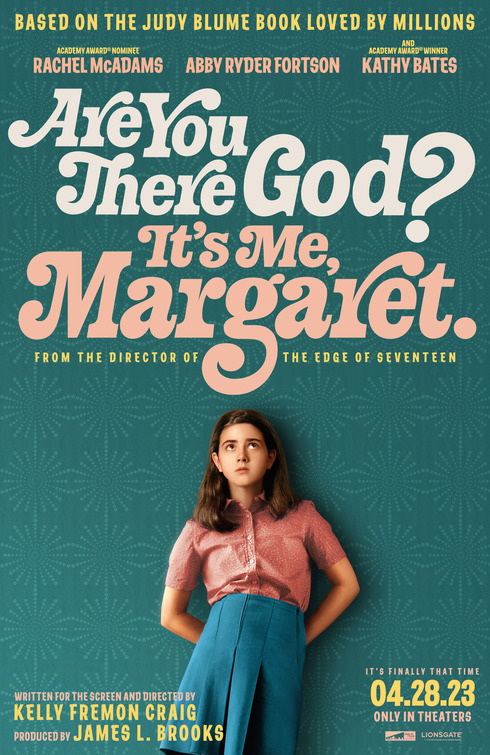
View On WordPress
#2023#Abby Ryder Fortson#Aidan Wojtak-Hissong#Amari Alexis Price#Are You There God? Its Me Margaret.#Based on a Book#Benny Safdie#Cinema#Comedy#Drama#Echo Kellum#Elle Graham#Family#Isol Young#Jecobi Swain#Judy Blume#Kate MacCluggage#Katherine Mallen Kupferer#Kathy Bates#Kelly Fremon Craig#Landon S. Baxter#Mackenzie Joy Potter#Olivia Williams#Rachel McAdams#Simms May#Zack Brooks
0 notes
Text
Are You There God? It's Me, Margaret. (2023, dir. Kelly Fremon Craig) - review by Rookie-Critic
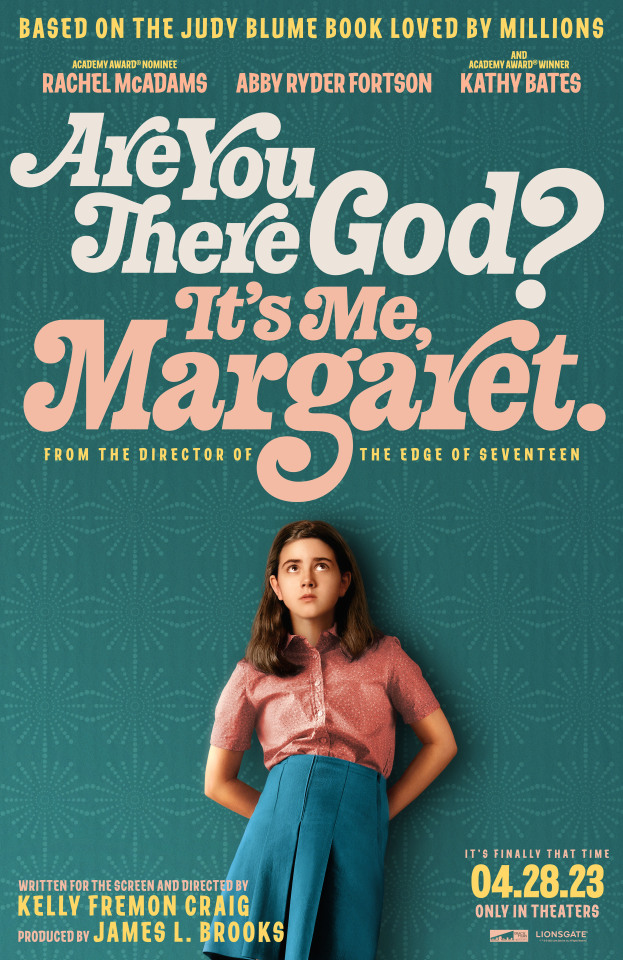
This movie really charmed me. I was, of course, aware of the book's existence and of Judy Blume in general (I had read the Fudge series of books in elementary school), but I'd never read it. So I had no idea what I was going into when I went and saw this a couple days ago. It turned out to be a lovely story that tackles female puberty, female identity, and complicated family dynamics in terms of religion in a very candid and unashamed way. It's a coming-of-age film that actually feels like our central character does just that; a year in the life film where we feel like our protagonist has gone on a journey and come out the other side of it changed. Not in some grand, high-stakes, movie way, but in a very human way. In a way that only a year of life experiences at that age could change you.
In the film, Margaret is a girl on the verge of entering the sixth grade, and is being forced to move from the bustling streets of New York City to the suburbs of New Jersey. From there the general things happen: she makes new friends, learns things about life and womanhood she was previously unaware of, has big talks with her mom (played by the always wonderful Rachel McAdams) about grandparents she's never met, and just exists as a pre-teen girl in 1970s America. Nothing particularly mind-blowing happens in the film's runtime, but the beauty of this story comes from all of the subtle changes and things that happen. The conversations with her new friends, her first crush, her curiosity about Judaism and Christianity as a result of being raised in non-religious household, and the culmination of all of these things as they shape the person you know Margaret will turn into as an adult as a result of these experiences.
I think what impressed me just as much as the main storyline with Margaret is how well embodied her mom is as a character. McAdams' Barbara Simon feels almost as important as Margaret and the story tries hard to show how the trauma of her parents affected her, and how much her and her husband Herb (a big, sweet doofus played by Benny Safdie) are trying to keep the stressors and potential trauma of extreme religion off of their daughter. It's wild to think of parents that are that supportive and progressive existing in that era of American history, but it's also a very refreshing to see an example of positive and affirmative parenting on screen. The deft hand with which directory Kelly Fremon Craig (whose previous film, The Edge of Seventeen, I also loved) handles religion in this is impressive. The condemnation of extreme devout-ism while not shunning the concept of personal faith away entirely is a bit of thin tightrope walk, but Craig and the entire cast walk it beautifully. Allowing Margaret to talk her perception of God on her own terms and the exploration of how that word means something different to everyone (if it means anything to them at all), and how all of those different meanings are ok, is a wonderful message to send. This is just one of those movies that, try as I might, I can't find a single thing to complain about. It's lovely, it's life-affirming, and it's a wonderful film for everyone, man, woman, young, old, and everything on the spectrum in-between, to enjoy. The most effortlessly great film so far this year.
10/10
Only in theaters.
Also, the soundtrack is front-to-back bangers, and the costume design department on this film deserves a ton of praise, because all of the outfits in this were cute as hell.
#Are You There God? It's Me Margaret.#Kelly Fremon Craig#Judy Blume#Abby Ryder Fortson#Rachel McAdams#Kathy Bates#Benny Safdie#Elle Graham#Echo Kellum#Isol Young#Amari Alexis Price#Katherine Kupferer#Aidan Wojtak-Hissong#Kate MacCluggage#Zack Brooks#Mia Dillon#Gary Houston#Simms May#Landon Baxter#film review#movie review#2023 films
0 notes
Text
😂🔊Now presenting: the trailer for season three of 'Make Some Noise'! Premiering June 24th.
Make Some Noise season three is our biggest and noisiest season yet and will consist of a whopping 20 episodes with host Sam Reich back behind the desk.
Featuring the return of the Noise Boys (Josh Ruben, Zac Oyama, Brennan Lee Mulligan) and an incredible slew of guests: Anna Garcia, Chris Grace, Carl Tart, Ify Nwadiwe, Ally Beardsley, Erika Ishii, Geoff Ross, Izzy Roland, Jacob Wysocki, Jacquis Neal, Jeremy Culhane, Jess McKenna, Jiavani, Kimia Behpoornia, Kurt Maloney, Lauren Pritchard, Lou Wilson, Nick Mandernach, Rashawn Scott, Ross Bryant, Vic Michaelis, Zac Oyama, Zeke Nicholson, Paul F. Tompkins, Talia Tabin, Victoria Longwell, Devin Field, Rachel Bloom, Hannah Pilkes, D.J. Mausner, Malachai Komanoff Bandy, Mimi von Schack, Maame-Yaa Aforo, Sarah Claspell, Ryder Dunagan, Caitlin Reilly, Pete Holmes, Bri Giger, Echo Kellum, Angela Giarratana, Corin Wells, Ben Schwartz, and Ryan Gaul!
3K notes
·
View notes
Text
PERIOD PIECE
Opening this weekend:

Are You There God? It's Me, Margaret--It begins with a shot of an adolescent girl, yelling with joy. She's literally a happy camper; we're seeing the summer before our heroine Margaret turns 12, and her life changes, inside and out. She comes home from camp to learn that her family--except for her adored and adoring grandmother--is moving from New York to small town New Jersey.
She quickly falls in with a new circle of friends, all of whom are anxiously but eagerly awaiting their first periods. The child of a mixed, non-practicing Jewish-Christian marriage, Margaret is so anxious about this milestone that she nonetheless starts talking to God, politely pleading with the Almighty to let her start puberty and "be normal."
For half a century now, Judy Blume's classic, sometimes (absurdly) controversial 1970 coming-of-age novel has been almost as much a rite of passage for American girls as the social and biological shifts it dramatizes. But it's never been a movie before; reportedly Blume never liked a script until the adaptation by Kelly Fremon Craig of The Edge of Seventeen, who also directed.
Apparently Blume's instincts are good. The resulting film is a home run, sweet and low-key yet cumulatively emotional. Abby Ryder Fortson is marvelously un-histrionic and endearing as Margaret; her spot-on line readings suggest the budding phase of a wary but observant and empathetic person. Craig's script slightly fleshes out the character of Margaret's frustrated-painter Mom, and Rachel McAdams gives the character her own hints of uncertainty; Benny Safdie works well as Margaret's good-natured Dad. Kathy Bates is showcased as the jolly Grandma, a fiercely pro-Margaret partisan who is overjoyed when her granddaughter asks to be taken to Temple.
Margaret's friends are a fine ensemble, led by the amusingly impudent Elle Graham as Nancy. Frizz-haloed Aidan Wojtak-Hissong makes an impression as the lawn-mowing Moose Freed; so does Isol Young as the towering Laura Danker, who has gained a reputation on the basis of nothing more than having bloomed early. Echo Kellum seems to have stepped directly out of the '70s as the earnest newbie teacher Mr. Benedict.
This is an example of Craig's best decision: to not update the material. The movie is set in the year of the book's publication, and the production design and soundtrack invoke 1970 so vividly that it may feel like a flashback to those of us who remember it. The legion of grown-up fans of the book will likely be delighted by this fidelity.
The question, of course, is what the film will mean to audiences Margaret's age. I recently asked a mom of two daughters if girls are still embarrassed about their periods; she assured me that they are. But it's hard to say if the novel's candor on that subject is as unusual as it was in 1970.
It should be noted, of course, that menstruation, or even the issues around adolescent crushes and friendships, are far from the only themes here. A family move that you don't want but are helpless to stop, for instance, is a relatable strife for kids regardless of gender, and when Margaret looks out her bedroom window at her bustling New York neighborhood, Craig makes us feel what a loss this will be.
The story also transcends mere health class manual utility in its treatment of Margaret's religious explorations. Her gentle, personal, terror-free, open-hearted conversations with God--as in Whoever is Listening--are in healthy contrast to the stress and guilt and family conflict she experiences in connection with organized religion. The movie makes a case for a secular upbringing, even for theists.
#are you there god? it's me margaret#judy blume#rachel mcadams#abby ryder fortson#kathy bates#benny safdie#echo kellum#kelly fremon craig
1 note
·
View note